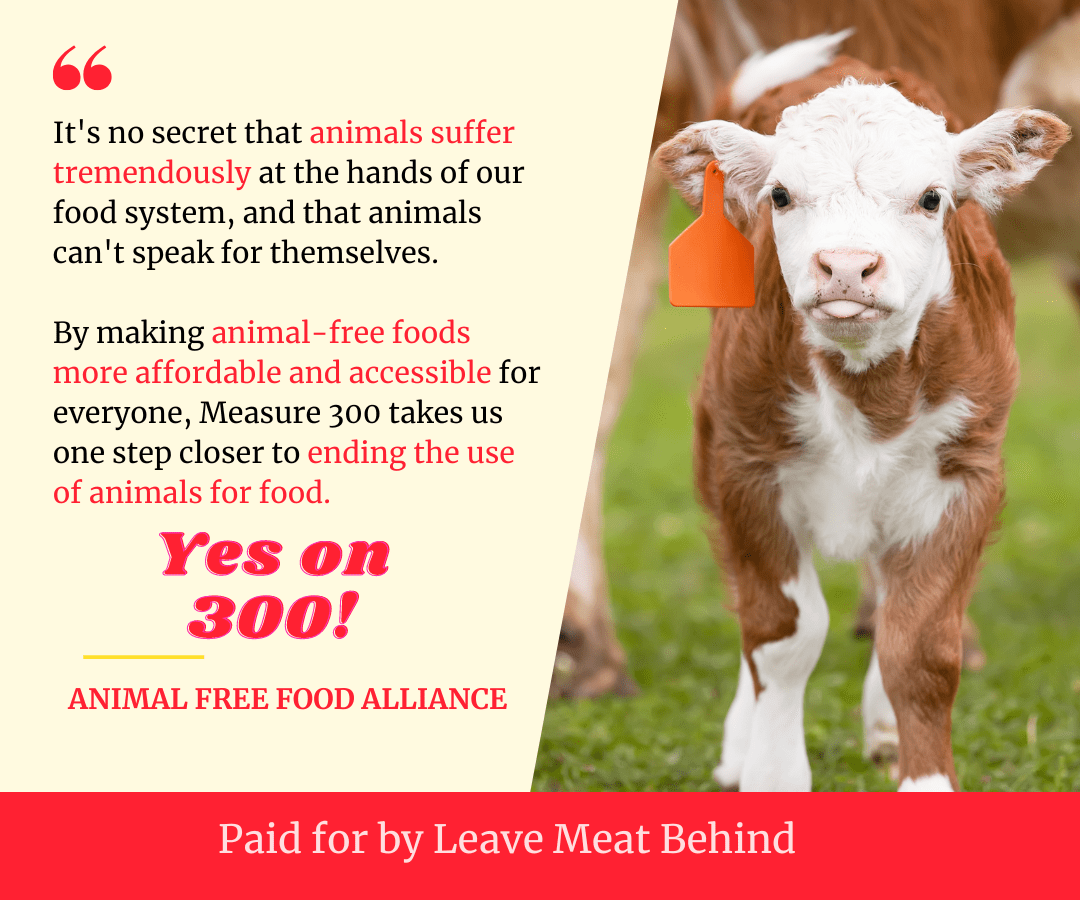Many people support animal rights in theory, yet few are motivated to completely give up eating our animal friends. In 2020, 50.7% of U.S. adults surveyed were at least partly in favor of a ban on factory farming. At the same time, 95.5% thought of eating animals as a personal choice. Veg eating has increased over time, especially part-time vegetarianism, along with awareness and availability of all things vegan. However, growth in the number of committed veg*ns has been unclear. So, what can advocates do to make sure we really gain momentum for chickens, cows, and other abused beings?
Data-driven approach for effectively advocating for animals
Methodology of the study
An advocacy group called Pax Fauna has put out new research suggesting how vegan advocates can sway the public. To decode the contradictions in people’s behavior towards animals, they analyzed all of the existing media and literature. Then, they did many rounds of interviews with over 200 non-vegetarian Americans, using their own words to build the best animal-rights messages.
Posing as a neutral research group, the interviewers asked the non-veg participants, “What comes to mind when you think about animals used for food?”
Common answers
At this, people expressed discomfort with their habits and what happens to animals. They tended to say things like, “It makes me sad. I try not to think too hard when I’m at a restaurant, or when I’m eating meat.” Someone else said, “I’m a little ashamed to say that I stick my head in the sand. Like, I don’t want to know how cruel the slaughter is. I don’t want to know how scared the chicken is right before…”
Although the participants justified meat based on tradition, naturalness, taste, and health, they often admitted these were not perfect reasons, especially after the interviewer empathized with what they had said. However, there was one reason for continuing to eat animals that almost nobody in the interviews could get past. In a nutshell: Even if I go vegan, others won’t. The massive industries won’t change. My individual effort to live differently won’t matter. The researchers dubbed this extremely common sentiment “the futility argument.”
What overcomes the Futility Argument
They looked for clues as to how it could be overcome. Here’s a message they ultimately came up with:
“We’re calling for an evolution away from meat at the societal level, where consumers, food producers, restaurants, and grocery stores work together to replace meat from animals and fishes with animal-free foods. We can protect animals and the environment using traditional staples like beans and vegetables along with innovative meat alternatives.”
When they tested these words in the next phase of research, the participants had a largely positive response. They pointed out that a societal transition would make it easier for people to adopt the lifestyle. The idea of collectively “evolving away” was catchy, supported by people’s familiarity with Beyond Meat and other modern brands that have already changed the food landscape.
“Citizens” are more engaged than “consumers”
It is not exactly news that veganism needs to take the pressure off individuals. Countless efforts have been readying us for collective change, from classroom education led by the Factory Farming Awareness Coalition, to hospitals and universities making plant-based meals the “Greener By Default” option. Still, when it comes to U.S. legal initiatives for farmed animals, most of them so far have been cage-free or welfare laws. Pax Fauna makes a strong case these laws are helpful, but they also want to work on laws that make bolder moves towards a slaughter-free future, while adding to the “citizen” roles we all can play. This could include voting on laws that, for example, ban new factory farms in a state, or that do something to make healthy plant-based food more accessible and affordable.

Measure 300 is a fictional ballet measure—for now!—but this is one of the many images Pax Fauna tested in its focus groups with meat eaters. The final results of their research are easy to browse: 15 key recommendations, colorful examples of what to say, and I’ve been reading through the full exhaustive reports here.
How to turn these learnings into actionable plan
Make it about everyone, not a narrow demographic
Tell a story of citizens acting collectively through their vote, and society evolving together. Highlight meat eaters who are a part of the movement. Also highlight individuals from diverse demographics that are not stereotypically associated with veganism—men, people of color, and the working class. This helps to show that everybody is and can be involved. Also include the stories of farmers finding it more practical to switch to plant-based agriculture, slaughterhouse workers who suffer on the job, and scientists and others who are innovating the food system for a slaughter-free future.
Be considerate of individual differences
Give empathy to the common objections people have. Focus more of your advocacy on responding to concerns, such as by valuing cultural traditions and talking about the need to make animal-free foods something we all can access. It helps to cite a numerical fact that compares the situation now with how things could be better if we end animal farming. Meanwhile, we can leave out language that is very emotional. Instead, ask questions. Use compelling images of humans who support the cause, and non-graphic ones of animals. That way we spark emotion subtly, so people feel like they can come to their own conclusions.
Let animals do the convincing
The animals themselves can be ambassadors through their images and stories. We can illustrate their natural behavior, and show how modern farming prevents them from fulfilling it. Point out that “it’s no secret” humane labels are deceptive; 99% of U.S. farm animals today are factory farmed. We can also calmly point out that feeling emotional about animals being abused is a good thing. Images of bodies after slaughter, and cute, happy animals, have worked well.
Disgust and social pressure work better than idealism
Use simple language. Think about ways you can avoid triggering the “consumer frame” that makes eating animals seem like a personal choice, and instead inspire the “citizen frame” whereby we all can vote for a better system. When you speak to the majority of folks, the goal is to activate disgust about animal agriculture, and convey that veganism is as an emerging social norm. Most people are more swayed by disgust and social pressure than they are by ethical appeals alone. Save those for your fellow supporters. Also, don’t bother comparing dogs with pigs, or comparing the animal freedom movement with human justice movements. These comparisons fail to generate a good reaction with the general public.
“Good cop, bad cop” effect
Radical activism plays a crucial role, though. When people see that there are radical proposals out there, it helps them feel more open to a proposal that is moderate by comparison. (It’s the “radical flank” effect.) Fortunately, journalists are on the same page with us about animal farming’s damage to the climate. While continuing to sound the alarm for our environment, the media is ready to be convinced by our strongest arguments about ending animal farming for animals’ sake.
Conclusion: Use societal norms to invite citizen action
This has been an oversimplified summary, but there is so much I am learning from the reports. I feel like I’ve just read the How to Win Friends and Influence People of vegan activism.
The reports distinguished between “the base” (people motivated to help animals and the environment), and the “persuadable” majority who respond more to social pressure and disgust. It is suggested that we adjust our communication for who we are talking to. My whole life, I have struggled to accept that altruism alone does not sway a lot of people—especially when the ones in need are not our own species. But somehow, as I read Pax Fauna’s reports, I was able to feel more accepting. Human behavior as a whole may be more driven by societal norms than by love for all beings, but that doesn’t mean people don’t truly value empathy. Activists can have compassion for the fact not everyone is wired to be a conscientious objector. Much of the public is happy to be dragged along by good causes. First they will just need sensible messaging, and sufficient social pressure, to agree to improvements that at first seemed too radical to adopt.
The more we use evidence-based messaging, while still feeling real and motivated in what we say, I believe we animal allies can have an easier time liberating our friends. Pax Fauna is one of many great research groups showing how we can use a keen understanding of today’s norms to shift to even better norms for the future. Finding ways to engage ourselves as empowered citizens is a big part of that.
I can’t wait to apply these findings to my writing, my conversations, and the projects I take on as an advocate. Let me know what you thought of Pax Fauna’s research!
Get more like this—Sign up for our daily inspirational newsletter for exclusive content!
__
Photo: narrative.paxfauna.org




